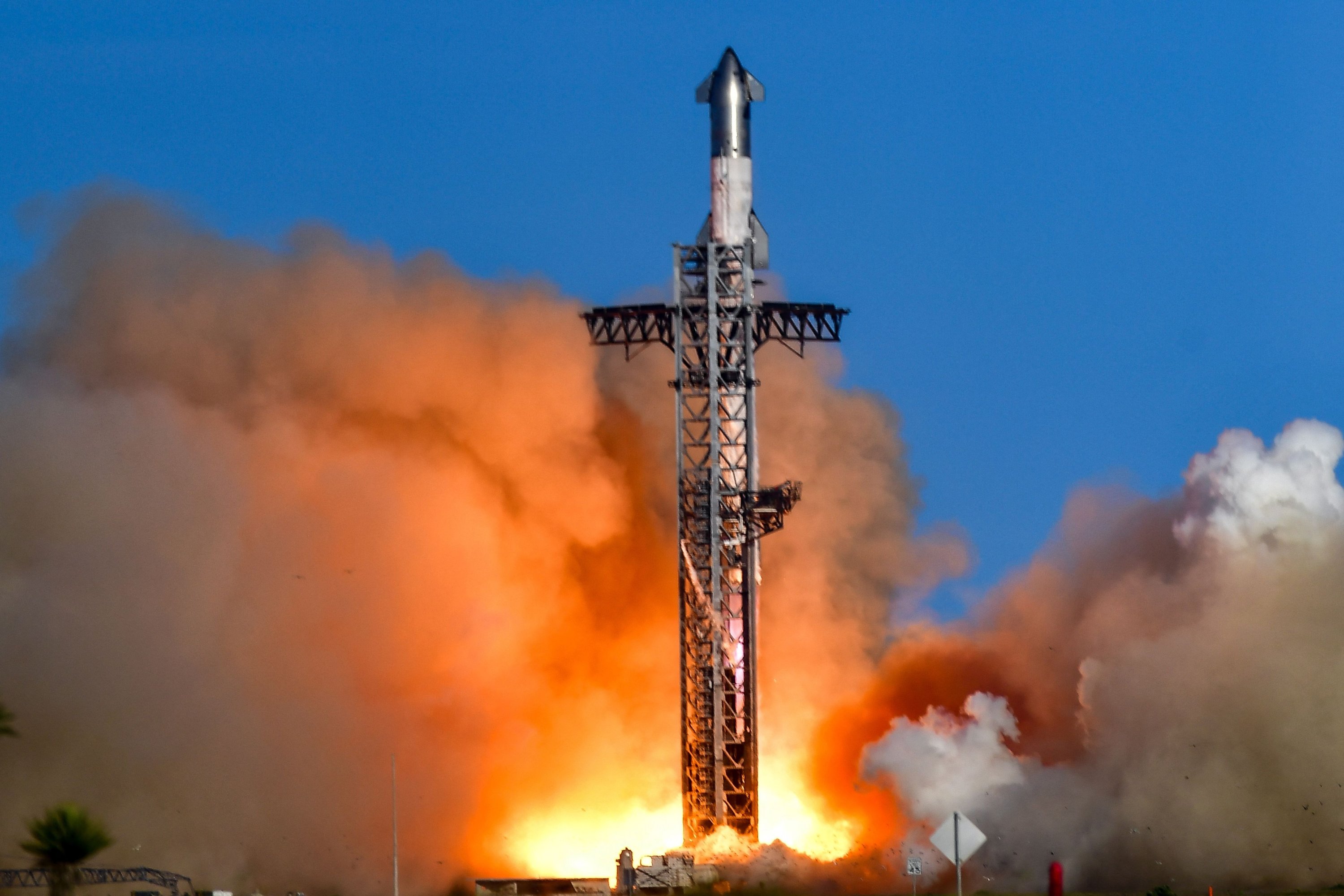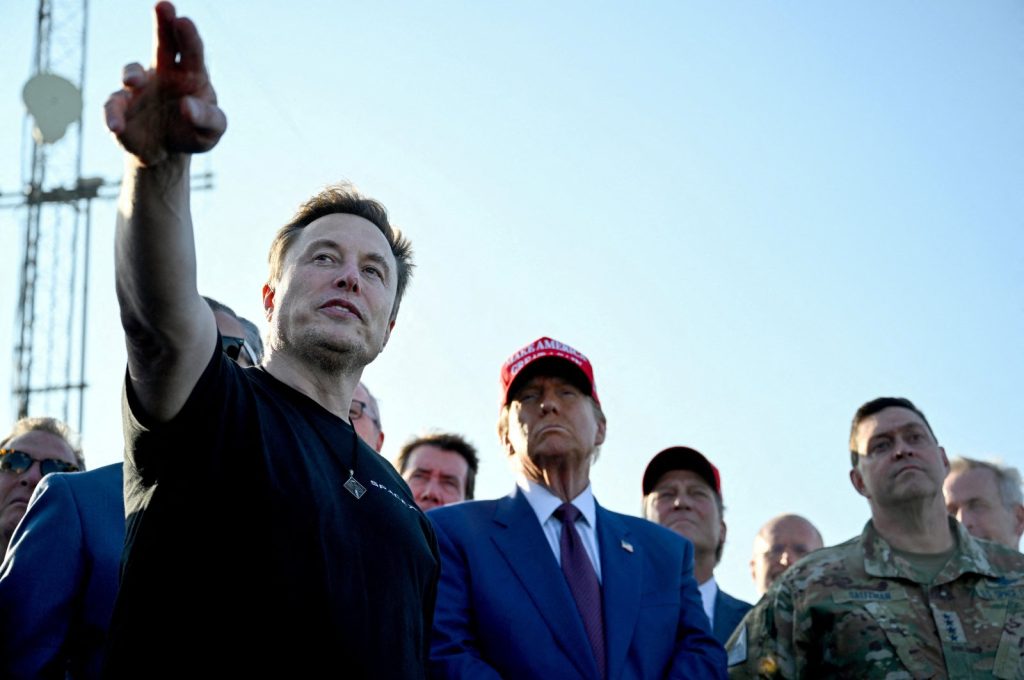Elon Musk’s recent appointment to lead the newly created Department of Government Efficiency under President-elect Donald Trump marks a significant moment in U.S. politics, intertwining technology, business acumen and governance.
Musk, the CEO of Tesla and SpaceX, has supported Trump’s political ambitions, reportedly investing over $120 million in Trump’s reelection campaign. His appointment is part of Trump’s broader strategy to streamline government operations and reduce bureaucracy. The Department of Government Efficiency is expected to focus on curbing government spending and enhancing efficiency across federal agencies.
Musk aims to implement significant reforms that could reshape how government functions. His vision includes conducting comprehensive audits of federal operations to identify waste and inefficiencies. This aligns with Trump’s agenda to eliminate fraud and improper payments, potentially saving trillions in taxpayer dollars.
Musk’s leadership could introduce a more entrepreneurial approach to governance, emphasizing rapid innovation and disruption – a hallmark of Silicon Valley culture. However, historical precedents suggest that such tech-driven initiatives often yield mixed results. Past projects that replaced public services with private solutions have faced criticism for exacerbating existing issues rather than resolving them. Critics warn that while Musk’s strategies may promise efficiency, they could also overlook critical social equity considerations.
Musk’s presence in Trump’s cabinet may alter the political landscape within the Republican Party, as he aligns more closely with conservative ideologies – particularly around issues like free speech and skepticism towards climate change.
His influence may also bolster Trump’s messaging strategy, leveraging Musk’s media presence to galvanize support among tech-savvy voters.
Musk’s role could significantly impact America’s foreign policy, particularly regarding China. His business interests in China – such as Tesla’s manufacturing operations – put him in a unique position to influence trade relations. As tensions between the U.S. and China escalate over technology and trade practices, Musk may advocate for policies that favor technological collaboration rather than confrontation. His understanding of global markets could be pivotal in navigating these complex dynamics.
Similarly, Musk’s appointment may affect U.S.-European relations. European leaders are already concerned about Trump’s potential policies regarding NATO and trade tariffs. Musk’s innovative vision could either reassure European allies about America’s commitment to technological leadership or exacerbate fears about unilateral actions that disrupt established alliances.
Starlink, Space X
His company, SpaceX and its Starlink satellite constellation exemplify how technology can reshape geopolitical landscapes.
Starlink aims to provide high-speed internet access across the globe, particularly in underserved and remote areas. This initiative not only addresses the digital divide but also has far-reaching implications for international relations. By offering connectivity to regions where traditional infrastructure is lacking, Starlink enhances communication capabilities for individuals, businesses, and governments alike. For instance, in countries like India, where Starlink is competing with local telecommunications giants like Reliance Jio and Airtel, the service could foster greater digital inclusion and economic development. This competition may also lead to improved services and lower prices for consumers.
Musk’s Starlink project can serve as a tool for U.S. foreign policy, providing the U.S. government with strategic leverage in international negotiations. The U.S. can strengthen diplomatic ties and promote American technological standards abroad by establishing partnerships with countries that utilize Starlink. For example, if nations rely on Starlink for critical communications during crises or natural disasters, it could enhance U.S. influence in those regions, positioning America as a leader in technological innovation and humanitarian support.
SpaceX’s advancements also intensify competition with other space-faring nations, particularly China and Russia. As SpaceX dominates the commercial launch market – accounting for about 80% of all payloads launched – it compels these nations to accelerate their space programs to maintain parity. China’s response has included ramping up its satellite capabilities and launching its internet constellation project, which directly competes with Starlink. This rivalry not only fuels technological advancements but also raises concerns about space traffic management and orbital debris mitigation as more satellites enter low Earth orbit.
The global nature of Starlink necessitates collaboration with international regulatory bodies to address issues such as space traffic management and satellite operations. As more countries engage with Starlink, there will be a growing need for comprehensive international agreements to govern the use of space resources and ensure sustainable practices. The existing frameworks established by treaties like the Outer Space Treaty may require updates to accommodate the rapid evolution of commercial space activities initiated by companies like SpaceX.

Relations with Türkiye
President Recep Tayyip Erdoğan has expressed a strong interest in collaborating with Musk on various technology initiatives, particularly in the aerospace sector. Musk’s SpaceX successfully launched Türkiye’s first domestically built communications satellite, TÜRKSAT 6A, which signifies a deepening partnership between the two entities. IMECE, another critical Earth observation satellite for Türkiye, was also launched by SpaceX. This collaboration not only enhances Türkiye’s capabilities in satellite technology but also aligns with Erdoğan’s ambitions to elevate Türkiye’s status in the global tech landscape.
Despite the successful satellite launch, Türkiye has yet to grant operational approval for Musk’s Starlink satellite internet service. However, both Musk and Erdoğan have indicated a desire to work together to obtain the necessary licenses for Starlink to operate in Türkiye. This move could significantly improve internet access across the country, particularly in remote areas where traditional infrastructure is lacking. Enhanced connectivity through Starlink could also bolster Türkiye’s economic development and resilience during crises, such as natural disasters.
Musk’s role as a prominent figure in U.S. politics – especially following his appointment to lead the Department of Government Efficiency – adds another layer to U.S.-Türkiye relations. Erdoğan’s willingness to engage with Musk reflects an understanding that fostering ties with influential American business leaders can yield economic and technological benefits for Türkiye. As Musk navigates his political influence, he may advocate for policies that facilitate U.S.-Türkiye cooperation in the technology and defense sectors.
Türkiye’s interest in collaborating with Musk also aligns with its broader goals of enhancing its technological infrastructure and reducing reliance on foreign technologies. By partnering with Musk’s companies, Türkiye can position itself as a regional leader in technology and innovation, particularly in artificial intelligence and space exploration. This strategic positioning could enhance Türkiye’s bargaining power on the international stage, especially as it competes with other nations for technological supremacy.
Statization of big tech
Musk’s role reflects a broader trend known as the statization of big technology owners, where influential figures in the tech industry increasingly engage with government structures to reshape policies that affect their businesses. This phenomenon raises concerns about conflicts of interest, as Musk’s initiatives could directly benefit his companies, such as Tesla and SpaceX, which rely heavily on government contracts and regulatory frameworks.
The concept of stateization suggests that as these tech leaders gain power within governmental frameworks, they may prioritize their interests over public welfare. For instance, Musk’s push for deregulation and efficiency might streamline operations but could also lead to reduced oversight and accountability in areas critical to public safety and social equity. Historical precedents indicate that efforts to replace or diminish public services with private sector solutions often exacerbate existing issues rather than resolve them.
As Musk aims to cut federal spending by significant margins – potentially up to $2 trillion – his approach mirrors past attempts by tech leaders to disrupt traditional governance models. However, such drastic reductions may overlook the complexities inherent in government functions, where many programs serve essential societal needs. The risk is that a focus on efficiency may lead to the dismantling of vital services supporting vulnerable populations.
Moreover, Musk’s engagement with international relations through initiatives like Starlink demonstrates how tech leaders can wield considerable influence on foreign policy. His partnerships with countries like Türkiye not only enhance technological collaboration but also position him as a key player in global geopolitics. This dual role – both a business leader and a government influencer – illustrates the intricate web of interests that can arise when private sector leaders enter public service.
In essence, while Musk’s vision for government efficiency may promise innovation and fiscal responsibility, it also highlights the potential dangers of intertwining corporate interests with public governance. As the U.S. navigates this new landscape, it will be crucial to ensure that the voices of citizens are not overshadowed by the ambitions of a few powerful individuals. The challenge lies in balancing the drive for efficiency with the need for accountability and social responsibility in governance.


